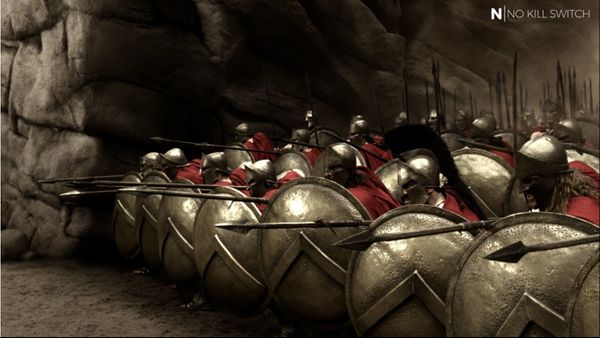This blog post is all about: what Jack Ma has in common with Elon Musk, whether we always condemn people who sacrifice personal balance to pull over-time (in fact we ... don't), is "up-or-out" culture unfair, how does Cristiano Ronaldo differ from a creator of next-generation Internet start-up ...
Some topics seem to be very sensitive in our (Software Engineering) community: female engineers & diversity, crazed job market & salary bubble, hype-train proneness, ... The issue of crunch does belong to this category undoubtedly. Widely condemned, actively opposed by Agile approach to building software (good!), still omni-present in gamedev, but apparently reduced by the fact that demand for programmers strongly exceeds the supply (so you caress your engineers, instead of scaring them off with overtime).
Case closed? I don't think so.
Several IT Chinese moguls OFFICIALLY support & have (at last partially) adopted so called 996 schedule as their baseline scheme of work: https://en.wikipedia.org/wiki/996_working_hour_system. Their leaders (like famous Jack Ma of Alibaba or Richard Liu of JD.com) claim that workers should consider 996 "a huge blessing" to "achieve the success [one] want[s] without paying extra effort and time.".
Needless to say, it's not just about China. Here's what Elon Musk says on the topic:
There are way easier places to work, but nobody ever changed the world on 40 hours a week
— Elon Musk (@elonmusk) November 26, 2018
It hasn't been w/o an answer. Some other prominent figures got very vocal on the topic (e.g. DHH), there were even some books published on this very topic: e.g. "It doesn't have to be crazy at work".
But who is right?
There's no doubt that world has got VERY competitive these days. Information flow is near instantaneous & very open. It's a start-up & scale-up era: everyone has ideas - but the success is all about execution: focus, speed, blitz-scaling to grab the virgin markets no-one grabbed YET. Sometimes you realize that THIS is the chance of your life-time, THIS is your moment - the small details & single droplets of sweat (and blood ...) may decide whether your adventure gets GRAND & GLOBAL or demolished & lying forgotten in the dust ...
Somewhere, in the middle of these considerations is ... a human being. And her/his life. Relatives. Friends. Love. Hobbies & passions. Life satisfaction.
BALANCE.
To make it even more complex - each situation is completely different (& should be judged using different perspective): as a company's Founder/Owner you can openly claim that you want "missionaries", not "mercenaries", but in fact shareholder's potential ROI (investment = extra effort) is hardly comparable to "normal" employee's one.
Looking around
We (in Software Engineering & Internet business in general) like to think we're very special. But it makes sense to peek outside of our bubble & take a look at other industries - their specific work cultures and how they approach the issue of balancing effort, commitment, outcome & ... duty:
- obviously there's helluva "shift-based" professions where your time (+basic efficiency, not effectiveness!) is really what you're directly compensated for - take McDonald's cashiers; this model would not work with jobs that do require a lot of creativity (as opposite to relying on basic instructions/routines)
- on the other hand, there's also a bunch of sales-related careers where people salaries are commission-based: the incentive is very simple - the more you sell, the more your earn (because you get a cut out of each deal); this is very flexible, leaves you (theoretically) a lot of freedom to adjust your effort-to-gain balance, but it doesn't mean it's always fair (targets tend to crawl up & successful spikes become new normal ...)
- take soldiers - it's a completely different kind of story because of their sense of duty (towards their brothers in arms but also people they protect & defend); they are willing to sacrifice a LOT even if their rewards are much more intrinsic (ethos, honor, shared values) than extrinsic (money) - if you're interested more in that kind of attitude, you should check Willink's "Extreme Ownership" - it's truly a decent book
- another interesting example: "up-or-out culture" - contrary to the common belief, many sign-up for it deliberately & eagerly; it's a culture of competition & rivalry fueled by the statement: "the fittest will survive" - there are e.g. very clear, transparent & openly communicated rules regarding: how much you can earn & when the promotions/rises happen, but ... e.g only top 5% are GUARANTEED to get promoted, next 10% get a raise & bottom %15 are being said goodbye ...
- and what about professional athletes? what's your opinion on sport titans like Serena Williams or Cristiano Ronaldo? they are an indisputable top of the top, who've reached absolute heights of athletic Olympus, but ... did you think what they had to sacrifice? how much "overtime" they pull out each day just to stay at the top? does it really differ that much from a brilliant & gifted start-upper betting everything on her/his newest endeavor?
So take these 5 scenarios, add 996 to them (as sixth).
What do you think about them (as career options)? Which ones would you condemn? Do you realize that all of them except the 1st one may end up with a significant over-time & titanic effort that reaches far beyond "standard" 40h/week?
Still, who would you rather condemn - Serena Williams? Or a developer with bloodshot eyes, in a 3 months-long crunch streak? Would you change your mind about that developer after realizing that (s)he was the part of Witcher III crew - a game you've loved and adored? Or a core Facebook member in the times when Zuck's company has outpaced all the competition to become practically a synonym of a social network?
Does the success (of lack thereof) change your perception? Or does the ROI multiplier do? Industry & ethics (values) behind it?
When is it OK to crunch & when it is not? What are the healthy boundaries? Are they the same for everyone?
Dumbfounded? Good :)
It's damn hard to answer these questions. But on the other hand - you HAVE to do that HONESTLY if you want to build a no-bullshit, ambitious team that aims to reach far beyond mediocrity (for real, not just in peptalks). In my personal opinion the secret of building a top-notch quality work culture that both BREAKS the boundaries & RESPECTS the individuals is all about:
- well-aligned work "CONTRACT" (between co-workers) - NO, it's not about the paperwork between you and your employer
- navigating in the space of GOALS (not timetables or schedules)
- engineering DISCIPLINE & reliability - which is NOT about deadlines, but focus, planning & value-orientation
- shared PRINCIPLES, not rules or policies - because these concepts are VERY different
- individually set commitment levels, based on personal BALANCE - communicated in a very transparent, information radiator-based way
- well-structured COMPENSATION approach - that is able to distinguish proficiency from commitment (& reward them accordingly, e.g. using "skin in the game" approach)
What does it mean? And how to make it work? I've described all that in the next post in the series ... Which can be found here.





